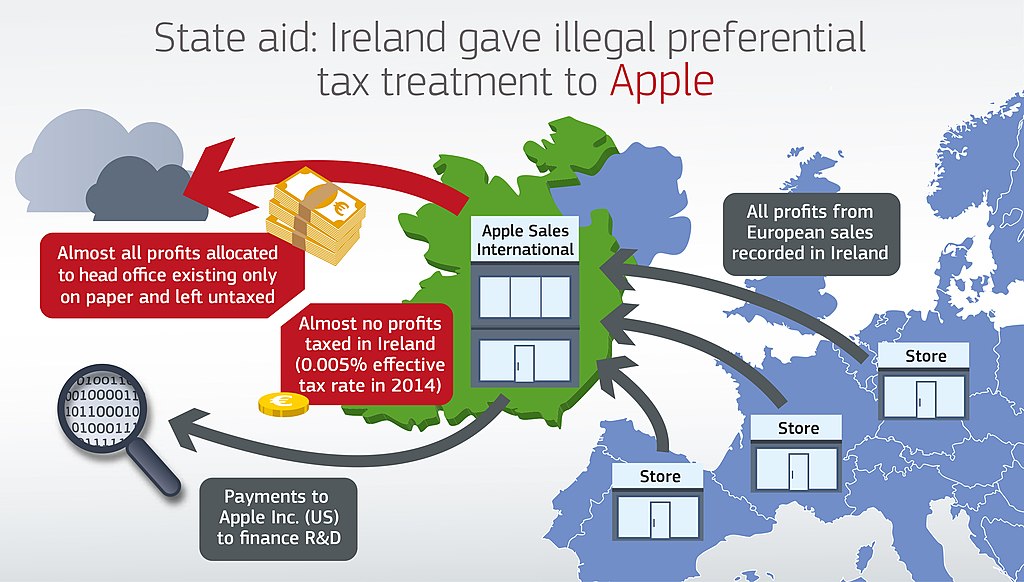9 janvier 2020

Photo credit: Geralt, pixabay / (sign up to receive our monthly newsletter)
The Fair Tax News, 9 January 2020
By Erika Beauchesne
Stock option loophole changes postponed again
In yet another delay of the progressive tax promises they made back in 2015, the federal Liberals have put off tightening one of the most regressive tax loopholes, the stock option deduction.
In the 2019-20 budget, the Liberals promised that, instead of eliminating it entirely, they’d limit this tax loophole to $200,000 a year for employees of “large, long-established mature firms.” This would be leaving the loophole wide open for many and partially open for all while further complicating the tax system.
The definition of “large, long-estasblished, mature” companies was bound to be problematic, which was yet another reason why we called on the government to close the loophole altogether.
Just before the holidays, Finance Minister Bill Morneau announced they would wait to make any changes to the loophole until the 2020-21 Budget because they needed more time to define what companies would be covered or not—just as we predicted. That week, the Hill Times published an opinion piece by Canadians for Tax Fairness urging the federal government to finally close this and other unfair tax loopholes, which could help raise billions in government revenues at a time of growing deficit.
It’s time—in their second mandate—for the federal Liberals to stop pretending to act and entirely close these regressive loopholes.

Corporate Income Tax Freedom Day comes early
January 7 was the day by which Canadian corporations could have paid all their corporate income taxes from their revenues for the year. We released a report showing corporate income taxes as a share of revenues have fallen to just 1.75% -- less than a week’s worth of revenues..
The report highlights how much corporate tax rates have declined over the past two decades and how they haven’t had the positive impacts promised. Business investment rates have declined, productivity has been sluggish, corporate power has become more concentrated, and Canadian corporations now have over $500 billion in cash on their balance sheets.
The report also showed how tax cuts have failed to trickle down to workers and instead overwhelmingly benefited those at the top -- shareholders through share buybacks, higher dividends, and exorbitant CEO pay.
A number of media outlets picked up the story, including Huffington Post, iPolitics, PressProgress, columnists, and radio stations. Thanks to our supporters for helping share the report and news coverage. Let’s continue to send a message to the federal and provincial government that it’s time to stop corporate tax cuts and invest in the public services Canadians need.

Google says it’ll end ‘Double Irish, Dutch Sandwich’ tax avoidance scheme
Photo: EU Commission
Google parent company Alphabet has put an end to the infamous tax dodging strategy known as the ‘Double Irish, Dutch Sandwich.’
The Double Irish allows a company to shift profits from a company in Ireland, a low-tax jurisdiction, to another Irish company located in a tax haven. A Dutch-based company is used in the middle because Dutch law allows profits from royalty payments on “intellectual property” such as patents and trademarks to be transferred from tax havens without tax. They’ve said they will now license their intellectual property from the US and not Bermuda.
Google is only one of many large corporations that took advantage of this tax dodging scheme. Others such as Facebook, Apple, Pfizer and Coca-Cola are estimated to have parked more than $1 trillion in 2017 in offshore accounts using this technique, the Guardian reports.
A recent report on the Silicon Six by Fair Tax Mark revealed that Google has paid an effective tax rate of just 7.1% on their foreign profits over the past decade and an average of just 15.8% on total profits when the statutory rate of tax in the U.S. was 35%.
Pressure from tax justice activists and the EU led to Ireland closing the loophole, but they’ve already opened up others.
Some experts were quick to point out that multinationals have already found many other offshore tax avoidance schemes to use in the loophole’s place, which should strengthen the case for broad and fundamental reforms to the global corporate tax system.
Recent changes to U.S. tax laws, which applied a tax to “global intangible income” eliminated the tax preferences for some of these particular tax dodging schemes—demonstrating that unilateral actions by individual governments can make a big difference to stop international tax dodging.

Executives’ pay eclipses taxes paid for some Canadian corporations: CCPA study
Photo: CCPA
As CEO compensation hits new highs, some corporations are paying their C-suite more than they pay in taxes, according to this year’s CEO report by the Canadian Centre for Policy Alternatives (CCPA).
The annual report found compensation for the top 100 CEOs in Canada reached a record average of $11.8 million – 227 times that of the average worker. This means they received as much by 10:09am on January 2 as the average Canadian worker will make all year.
This year, Canadians for Tax Fairness collaborated with the CCPA on research into how much corporations were paying in tax. We found 13% of corporations paid their top five executives more in 2018 than they paid in corporate income taxes on average over the 2014-18 period.
Air Canada, Maple Leaf Foods, and Encana were just some of the major companies that paid their execs more than what they paid in taxes. And to rub it in, much of this CEO and executive compensation is in the form of stock options that is taxed at half the tax rate that applies to regular employment income that workers pay.
As we point out, unfair taxes contribute to this deepening inequity. When you tack on lower corporate tax rates and the suite of tax loopholes available to top earners, the gap between the very rich and average workers gets even bigger.
We’ve called for a number of progressive tax measures to make the tax system fairer and more equitable, including:
· Eliminating the stock option deduction and other regressive loopholes
· Limiting corporate deductions for executive pay to $1 million each
· Raising taxes on top incomes, the wealthiest and corporations
Bernie Sanders has proposed another great idea: to apply higher corporate tax rates to corporations that pay their executives more than 50 times what they pay their median workers.

Head of IMF calls for higher taxes on wealthy
Photo: Frantisek Krejci
The new head of the International Monetary Fund (IMF), Kristalina Georgieva, says we need more progressive taxes and social spending to reduce inequality and create opportunities –and it can be done without sacrificing economic growth.
The international body has long supported tax cuts and cuts to social spending, but in recent years has acknowledged that these policies are not helping growth. Georgieva took over as head of the IMF in October, replacing former IMF head Christine Lagarde, who is now president the European Central Bank.
Georgieva said raising tax rates on the wealthy, improving tax collection, introducing gender budgeting, increasing social spending and combating corruption are better ways to boost government revenues and enhance equality.
The idea that higher taxes can actually be good for business was recently explored in a fascinating New York Times feature about Finland, one of the highest-taxed and happiest regions, which is also home to many successful international companies.
As evidence piles up that progressive taxes can bolster social and economic health, there is a widening consensus that the wealthy need to pay more, even among themselves. Yet another poll last month found 59% of millionaires support a tax on those earning $50 million or more in the US, where Democrat politicians like Senators Elizabeth Warren and Bernie Sanders are pushing progressive tax policies in the race for leader.

Fairer taxes could have solved major city problems, new study shows
Photo: Caribb, flickr.
Lost revenues from low property taxes have cost the largest city in Canada, according to a study released this week by the advocacy group, Social Planning Toronto.
The report shows how a decade of municipal austerity budgets have resulted in increased living costs for residents. The figures are stark – the city had 17,282 children waiting for subsidized childcare spots as of September last year, the cost of a monthly transit pass has gone up by $24.9% in the past decade, and rent for a one-bedroom has risen by 33.7%, the Toronto Star reported.
While the city’s mayor recently raised property taxes by 8% over the next six years, the study points out this is too little, too late. It calculates that had this overdue measure been introduced 10 years ago, the city could have dealt with two of its biggest affordability problems –housing and transit—with money to spare.
Social Planning Toronto released its report as the city begins budget deliberations. It makes three progressive tax recommendations that could raise enough revenues to address rising costs, including a vacant home tax; increasing municipal land transfer tax for luxury homes, and re-introducing a vehicle registration tax.